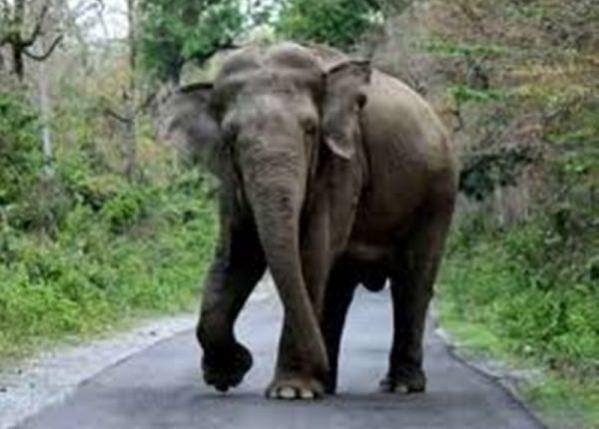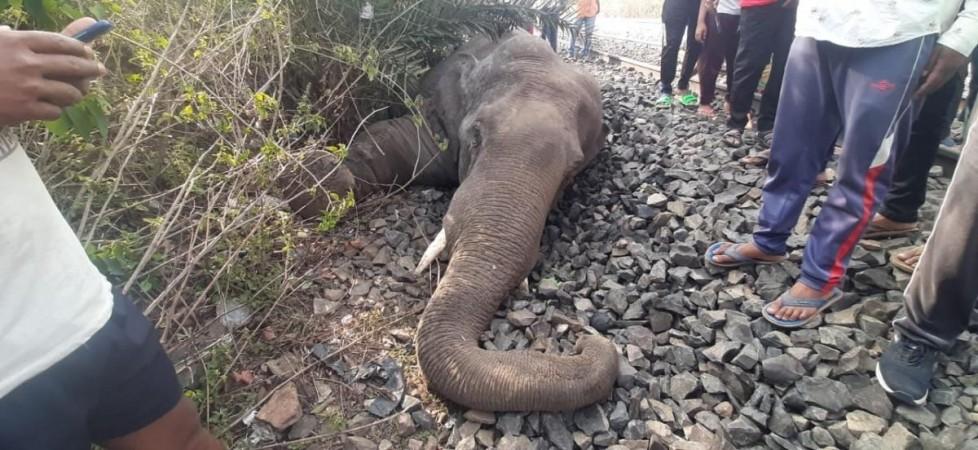Even as the government has increased the focus on conservation of wildlife, instances of human-animal conflict have resulted in loss of life of both humans and animals over the years. A large number of elephants have lost their lives due to various reasons ranging from electrocution, poisoning to accidents.
As per the information from the Ministry of Environment and Forest, between 2019-20 and 2021-22, a large number of elephants were killed due to various reasons including electrocution and others. The data said that a total of 198 elephants were killed by electrocution across the country, 41 by trains, 27 by poachers and 8 by poisoning during the same period.
On the other side, a large number of humans also became victims of the conflict leading to their deaths. Elephants killed 1,579 humans in three years - 585 in 2019-20, 461 in 2020-21, and 533 in 2021-22. So far as the states are concerned, Odisha recorded the highest number of these deaths at 322, followed by Jharkhand at 291, West Bengal at 240, Assam at 229, Chhattisgarh at 183, and Tamil Nadu at 152.

So far as the deaths of elephants are concerned, out of the 198 elephant deaths caused by electrocution, Assam recorded 36, Odisha 30 and Tamil Nadu 29. Assam (15 out of 41) also had the highest number of elephant deaths caused by trains, followed by Odisha (8) and West Bengal (5). Poaching deaths were the highest in Meghalaya (11) while poisoning deaths were the highest in Assam (7).
The Ministry in a Parliament reply on July 25 said that assessments of human-wildlife conflicts indicate that the main causes include habitat loss, growth of population of wild animals, changing cropping patterns that attract wild animals to farmlands, movement of wild animals from forests to human dominated landscapes for food and fodder, movement of human beings to forests for illegal collection of forest produce, habitat degradation due to growth of invasive alien species, etc.
The Parliament standing committee on Environment and Forests in its March, 2023 report took note of the human-animal conflict. The Committee noted that Project Tiger and Project Elephant are crucial to the initiatives of the Ministry relating to wildlife conservation, not just from an ecological standpoint but also for its societal and economic value. "The initiatives of the Ministry, or the lack of it, have a direct bearing not just to the project but also to the human population living in these vulnerable areas. With increasing reports of man-animal conflicts, it becomes even more important that the Ministry sharpens its focus towards these projects and also allocate more funds for meeting necessary expenditures. The Committee therefore recommends that the Ministry ensures that funds allocated in R.E. 2022-23 be optimally utilized. Further, the Ministry should seek additional allocation under this head so as to ensure that no conservation initiative is left because of inadequacy of funds," said the panel in its report.

As per the Ministry, financial assistance is provided by the Ministry to States/Union Territories under the Centrally Sponsored Schemes of 'Development of Wildlife Habitats', 'Project Tiger', and 'Project Elephant' for activities like creation and maintenance of water holes for wild animals in Protected Areas, soil and moisture conservation measures, establishment of anti-poaching camps, strengthening wildlife veterinary care, eradication of weeds, creation and maintenance of fire lines, deployment of Tiger Protection Force and special Tiger Protection Force etc.
Critical elephant habitats are notified as 'Elephant Reserve' for focus and synergy in elephant conservation and to reduce conflict. The notification is carried out with the approval of the Steering Committee formed in the Ministry. So far 32 Elephant Reserves have been established across major elephant States.
(With inputs from IANS)
















